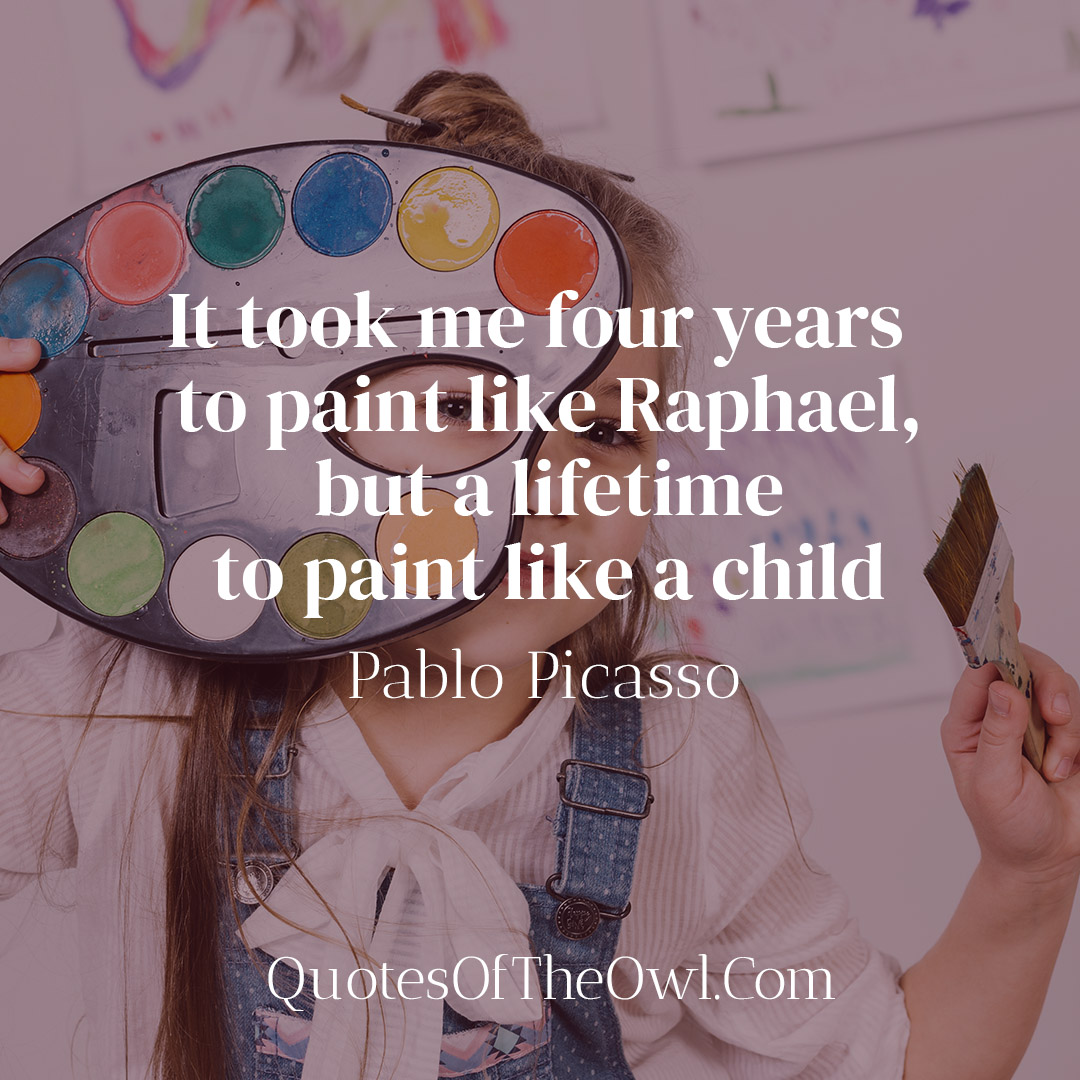Discovering the True Meaning behind Pablo Picasso’s Iconic Quote: “It took me four years to paint like Raphael, but a lifetime to paint like a child.”
When it comes to the world of art, Pablo Picasso is undoubtedly one of the most celebrated and influential artists of all time. Over the years, his art has been recognized for its unique style, powerful impact, and incredible creativity. However, one quote from Picasso has stood out above the rest: “It took me four years to paint like Raphael, but a lifetime to paint like a child.” This quote has been interpreted in many different ways, but what does it really mean? In this article, we’ll delve into the true meaning behind this iconic quote and explore why it remains relevant today.
Understanding Picasso’s Artistic Journey
Before we dive into the quote itself, it’s important to understand Picasso’s artistic journey. Born in Spain in 1881, he began painting at a young age and quickly showed an incredible talent for art. By the time he was a teenager, he was already studying under some of the most respected artists of the time. Throughout his early career, Picasso experimented with many different styles, including realism, impressionism, and surrealism.
However, it wasn’t until the early 1900s that Picasso truly began to develop his own unique style. He became one of the pioneers of cubism, a revolutionary art movement that broke away from traditional methods and focused on the use of geometric shapes and abstract forms. This marked a turning point in Picasso’s career and set the stage for his future success.
Decoding the Quote
Now, let’s take a closer look at the quote itself: “It took me four years to paint like Raphael, but a lifetime to paint like a child.” At first glance, it may seem like a simple statement about Picasso’s artistic development. However, there is much more to it than meets the eye.
The first part of the quote, “It took me four years to paint like Raphael,” refers to the period in Picasso’s career when he was still developing his technical skills. Raphael was a master artist of the Renaissance period, known for his incredibly realistic paintings and attention to detail. In order to achieve this level of technical proficiency, Picasso spent years studying and perfecting his craft.
However, the second part of the quote, “but a lifetime to paint like a child,” is where things get more interesting. Picasso’s use of the word “child” here does not refer to childishness or immaturity. Instead, it represents a return to a more innocent, intuitive way of creating art. Picasso believed that children had a unique ability to see the world in a different way, free from the constraints of adult thinking and societal norms.
In essence, Picasso’s quote is a testament to the power of creativity and imagination. It speaks to the idea that true art comes from within and cannot be taught or learned through technical skill alone. Rather, it requires a deep understanding of oneself and a willingness to embrace the unknown.
The Relevance of the Quote Today
Despite being spoken over a century ago, Picasso’s quote remains incredibly relevant today. In a world that is becoming increasingly focused on technology and efficiency, it’s easy to forget the importance of creativity and intuition. Picasso’s words serve as a reminder that true art comes from within and cannot be replicated or manufactured.
Furthermore, the idea of “painting like a child” has taken on new meaning in recent years. Many modern artists are embracing a more intuitive, childlike approach to their work, breaking away from traditional methods and embracing experimentation and spontaneity. This trend is a testament to the enduring power of Picasso’s quote and its impact on the art world.
Conclusion
In conclusion, Pablo Picasso’s quote, “It took me four years to paint like Raphael, but a lifetime to paint like a child,” has resonated with artists and art enthusiasts for decades. It speaks to the power of creativity, intuition, and imagination, and reminds us that true art cannot be learned or taught through technical skill alone.
Picasso’s artistic journey was one of constant experimentation and evolution, and his quote serves as a testament to the importance of embracing new ideas and approaches. Whether you are an artist or simply someone who appreciates art, there is much to be learned from Picasso’s words.
So the next time you’re feeling stuck or uninspired, remember Picasso’s quote and try approaching your work with a childlike sense of wonder and creativity. Who knows what new ideas and possibilities may arise?
Unlock the deeper meaning behind Pablo Picasso’s most powerful quotes!

